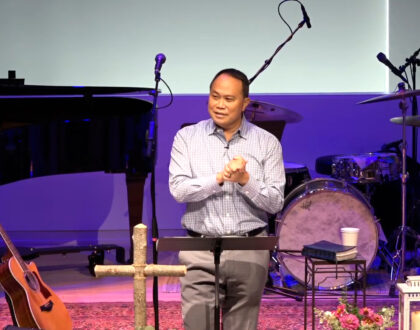When Today’s Christianity Misrepresents Jesus

Selfishness and self-centeredness abound in our culture, even among Christians. It is why Jesus said, “To become my follower, you must deny self, take up your cross, and follow me.” I often hear people make the case that much of today’s Christianity is not indicative of what Jesus taught and embodied. My good friend and retired minister Rubel Shelly once published an excellent book titled I Knew Jesus Before He Was a Christian… and I Liked Him Better Then. His basic claim is that the Jesus of history and the Jesus of common public perception are two very different persons. He argues that the church has done a poor job of representing Jesus and his message over the past two thousand years to the extent that he has become unattractive to many today. He quotes American scholar Sam Pascoe who famously said: “Christianity was born in Israel, only to be taken to Greece and morphed into a philosophy. From there it was taken to Rome and made into an institution of civil power. Eventually, it migrated to Europe where it was developed into a culture. And later, it was brought to America and made into an entrepreneurial business enterprise.”
Shelly says that when we institutionalized Jesus around the time of Constantine, we watered down core parts of his message and we started to become more concerned with maintenance, doctrine, beliefs, power, and blending Jesus with the culture. What we now have in our culture is a lot of people who really don’t know what Jesus was all about because the church has misrepresented him for so long. We’ve made him into what we want him to be rather than allowing his message to speak for itself. We have tried to put Jesus in a box to fit our own agendas. In some ways, we have even put words into his mouth.
Jesus was asked by a scribe, “Which commandment is the greatest?” And Jesus responds with: “You shall love the Lord your God with all your heart, with all your soul, with all your mind, and with all your strength. And the second commandment is like it: you shall love your neighbor as yourself. There is no other commandment greater than these.” That’s it! That’s what the Christian life should be about. It is very straightforward! Yet if we are honest, we know that we have a hard time following these two basic commandments. They are simple. We know them by heart, yet they are very difficult and complex at the same time!
Methodist pastor Martin Thielen asks these questions: “Of all the things that clamor for our time, energy, and attention, what matters most? What is the bottom line? We are all constantly bombarded with dozens of concerns, including our job, career, marriage, children, home, friends, faith, church, community, health, and finances. And these concerns often compete with one another for our time and energy. So how do we figure out what matters most? What is primary? What is secondary? What really counts? That’s what this scribe in Mark 12 is trying to figure out. He wanted to know, what is the greatest priority in life?”
For Jesus, we should focus on having a relationship with God and a relationship with others. And it should happen in that order. So before we get too wrapped up with doctrine, biblical literalism, worship styles, social issues, culture wars, partisan politics, and church shopping, we should ask ourselves, “How are we doing when it comes to following these two central commandments?” That will tell us a lot about our life and our faith. Think about the symbol of the cross. The vertical bar represents our relationship to God (worship, prayer, Bible Study, etc). The horizontal bar represents our relationship to others (mission, service, outreach, kindness). Without both bars, we don’t have the cross. Without both aspects of the faith, we don’t have a complete faith.
Recommended Posts

Political Violence is Never the Answer
July 25, 2024

“Messenger” – Justin Gung – July 14
July 14, 2024

Celebrating Woodmont’s 81st Birthday
July 10, 2024

